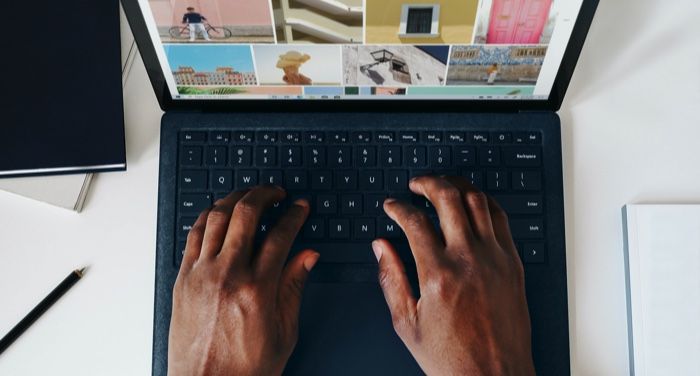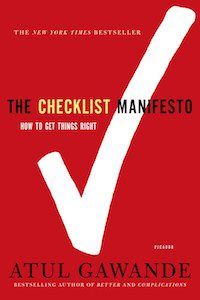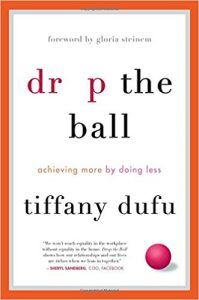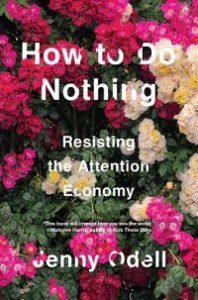
9 of the Best Productivity Books For When You’re Mentally Exhausted
I think we can agree that 2020 has been a challenging year. And with so much social change requiring our attention, mental exhaustion might be a natural side effect. In this atmosphere, it’s no surprise if your typical strategies for staying attentive and avoiding distraction just don’t work anymore. The good news is there are plenty of books on productivity written by qualified experts for you to investigate and try out some new methods. The resources in this list are filled with actionable steps to help you mobilize your energy and stay focused. Their lessons are useful whether you need to learn new tricks for effectively planning and maximizing the hours in your day or to boost yourself up to finally complete the project you’ve put on hold for months.
This list includes the best productivity books that outline tips and lessons to effectively get stuff done and motivate yourself to work hard—even when you feel like your mental energy is at your lowest.
The 9 Best Productivity Books
1. Bored and Brilliant: How Spacing Out Can Unlock Your Most Productive and Creative Self by Manoush Zomorodi
Zomorodi believes in doing nothing. She used listeners to her podcast, Note to Self, as a pool of participants in an unofficial experiment about unplugging from the devices that suck up so much of our attention. Zomorodi refines those lessons in this book, which emphasizes how “spacing out” and letting our mind wander is actually a compelling tool for helping us to be more productive. The teachings of this book may prove especially helpful if your lack of productivity is the side effect of constant attention to the news in these turbulent times. Zomorodi makes a compelling case for how tuning out the periphery helps us to intently focus on our immediate responsibilities.
 2. The Checklist Manifesto by Atul Gawande
2. The Checklist Manifesto by Atul Gawande
What might appear to be a basic checklist, Gawande argues, can also be a very powerful took for identifying and prioritizing tasks. In this book, the writer, researcher, and surgeon focuses primarily on the medical field to demonstrate how checklists can be an effective tool for narrowing vast amounts of information into individual tasks. This book is a bit academic, but includes powerful research to show that sometimes the simplest tool for productivity can be the most effective.
3. How To Stop Procrastinating: A Simple Guide to Mastering Difficult Tasks by Steve Scott
The book’s title adequately proves why it appears on this list. Scott believes that action is at the root of productivity. He elucidates a formula to break down the mountain of things we need to accomplish into small, actionable tasks. The author assures readers that they can make productivity a habit, not just an occasional state of mind.
 4. Drop the Ball: Achieving More by Doing Less by Tiffany Dufu
4. Drop the Ball: Achieving More by Doing Less by Tiffany Dufu
Sometimes the best way to get something done is by simply not doing something else. If you read that as a redundant statement, Dufu has some lessons to convince you otherwise. The author has a long list of leadership experiences on her resume, and in this book recounts the greatest wisdom she learned during her career: doing less is more. Part memoir and part manifesto, this book is a useful instruction for eliminating the feeling of being overwhelmed when tackling responsibilities.
5. Manage Your Day-to-Day: Build Your Routine, Find Your Focus, and Sharpen Your Creative Mind edited by Jocelyn K. Glei
This guide condenses contributions from a sizable amount of creative types who have real-world experience fighting the battle to be productive in order to achieve their success. A sampling of these include Leo Babauta (operates the blog Zen Habits about eliminating stressful practices), Gretchen Rubin (author of books and a podcast about happiness), and Linda Stone (writes about the relationship of humans and technology). If you trust and like hearing about how others have overcome inattentiveness or a deflation of motivation, the voices included in this book serve numerous lessons.
 6. Indistractable: How to Control Your Attention and Choose Your Life by Nir Eyal
6. Indistractable: How to Control Your Attention and Choose Your Life by Nir Eyal
Eyal wrote the book Hooked: How to Build Habit-Forming Products in 2014, which is a how-to guide for designers seeking to make products that pull users in and leave them wanting more. With that foundation, in this book he flips the wisdom to offer advice about how technology users can break that cycle. Eyal argues that knowing how to become “indistractable” (unrelenting to distraction) is the foremost skill to become productive—and teaches you how exactly to accomplish it. This book is for you if you’ve ever felt like the only way to feasibly get work done is to toss your phone out the window to eliminate its diversions.
7. The Checklist Book: Set Realistic Goals, Celebrate Tiny Wins, Reduce Stress and Overwhelm, and Feel Calmer Every Day by Alexandra Franzen
Another book that exalts the power of the checklist and makes a compelling argument for its ability to make us more effective and productive. Franzen teaches readers how to harness the power of this simple organizational tool, from assigning priority tasks to physically writing out a to-do list. This guide lays out easy to follow steps in order to produce useful checklists for all circumstances, whether a single day or a months-long process.
8. The Simplicity Principle: Six Steps Toward Clarity in a Complex World by Julia Hobsbawm
This book (and podcast of the same name) goes back to the basics by helping readers achieve the right attitude toward work before even considering what assignment to tackle first. Hobsbawm is a writer who focuses on social health, specifically how humans can succeed in our complex and complicated modern age. In this short book she argues that having a narrow focus is the key to expanding our productivity.
 9. How to Do Nothing: Resisting the Attention Economy by Jenny Odell
9. How to Do Nothing: Resisting the Attention Economy by Jenny Odell
Writer and artist Odell ascertains that a regular practice of setting aside time to do nothing is foundational to conserving and retaining our attention. Refueling ourselves in this way, she says, helps us to be more effective once we return to work. This book is not exactly a step-by-step guide, but if “nothing” sounds like an attractive concept to you, it’s an important read.
I think it’s important to conclude by acknowledging that if you are struggling to be effective at even the most basic daily tasks, you might consider seeking the expertise of a mental health expert. Sometimes a healthy dose of motivation is enough to dig yourself out of a rut. But listlessness and disinterest can also signal a larger mental health issue that deserves appropriate treatment. If you are interested in some books about this, check out Book Riot’s archives on mental health topics.















